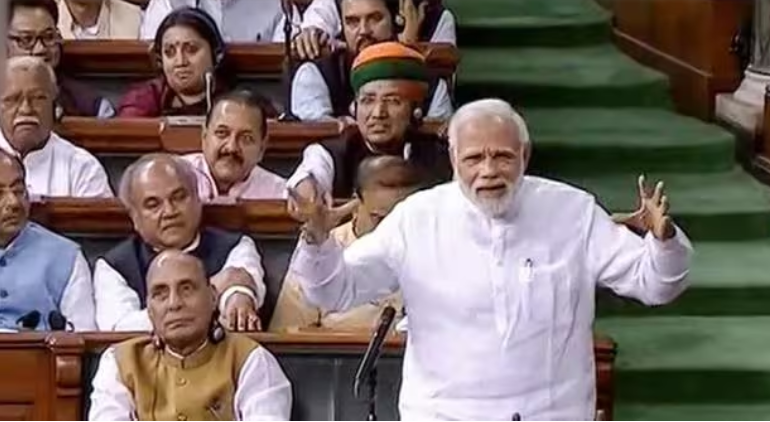Indian No-Confidence Motions: A Historical Perspective with Notable Instances
As the Narendra Modi government faces its 28th no-confidence motion in the history of independent India, a glance at the past reveals interesting insights into these critical parliamentary proceedings.

In 1952, the Lok Sabha required support from 30 MPs to move a no-confidence motion (the current number is 50). However, no such motion was tabled during the initial two Lok Sabhas.
The first no-confidence motion was raised in 1963 by Acharya J B Kripalani against Prime Minister Jawaharlal Nehru’s government. Though engaging, the motion did not aim to displace the ruling party and did not lead to a change in the government.
From 1964 to 1975, the Lok Sabha deliberated on 15 no-confidence motions, three against Prime Minister Lal Bahadur Shastri and 12 against Indira Gandhi. Despite these motions, none succeeded in toppling the government.
The turning point came in 1979 when Y B Chavan moved a no-confidence motion against Prime Minister Morarji Desai. After a nine-hour debate over two days, Desai resigned before the motion could be put to a vote, marking the first successful no-confidence motion in independent India.
Following this, no-confidence motions against subsequent Prime Ministers, including Rajiv Gandhi in 1987 and P V Narasimha Rao, were defeated due to their overwhelming majority in the Lok Sabha.
During Rao’s term, however, he faced two close calls in the 10th Lok Sabha. He managed to defeat one motion by 46 votes and another by a larger margin. The third no-confidence motion that Rao overcame, though victorious, faced controversy due to allegations of bribery against some MPs.
In 2018, the Modi government faced another no-confidence motion, which it defeated by a substantial margin. While 126 MPs supported the motion, 325 MPs rejected it in the Lower House. During the debate, Rahul Gandhi, then Congress president, made a dramatic gesture of embracing Modi after his speech.
In the recent motion against the Modi government, the Prime Minister called for all parties to dismiss the move, criticizing the Opposition’s “negative politics.” He also humorously remarked on Rahul Gandhi’s request for a hug, stating that only the electorate could decide the fate of leaders.
Overall, India’s history of no-confidence motions highlights the significance of these parliamentary procedures and their impact on the nation’s governance and political landscape.


